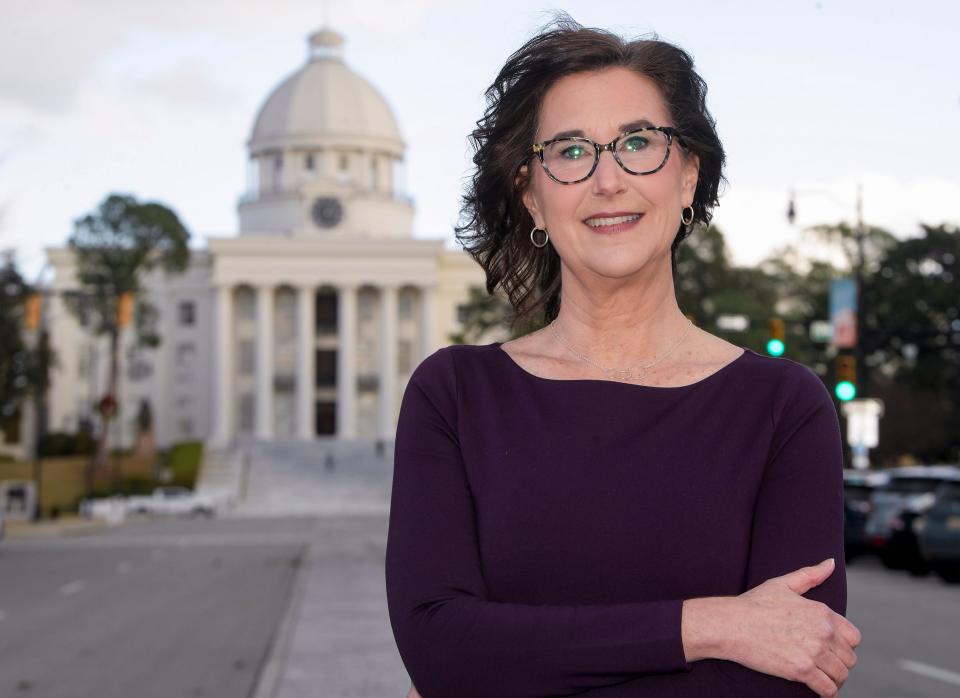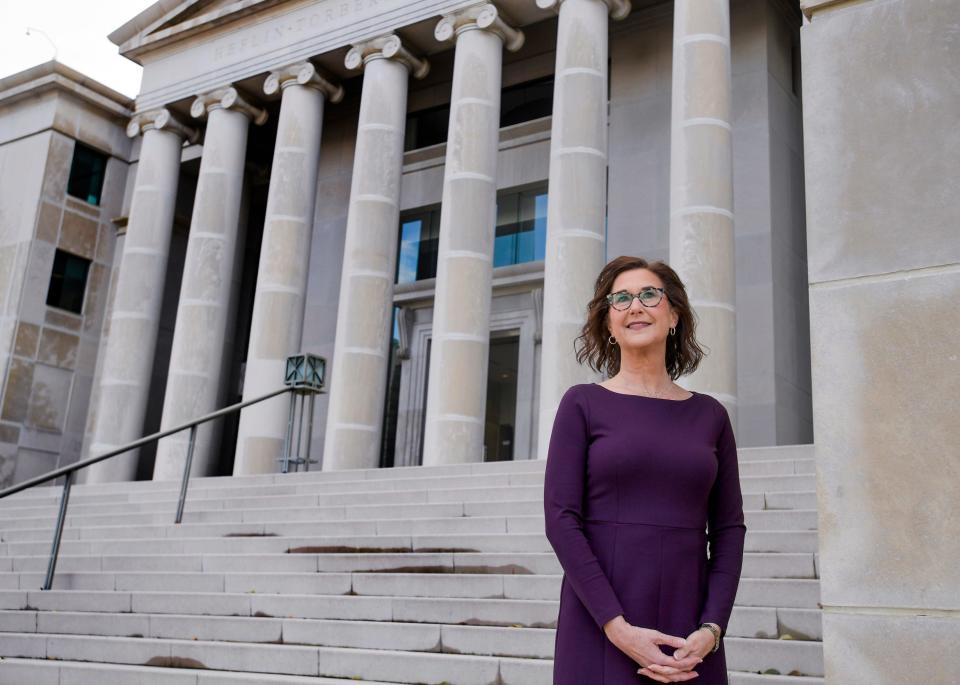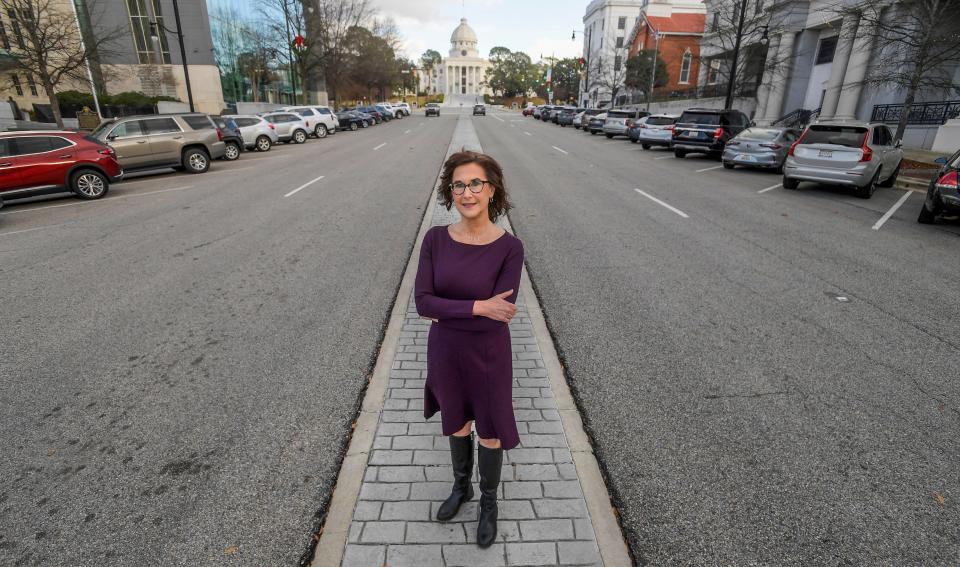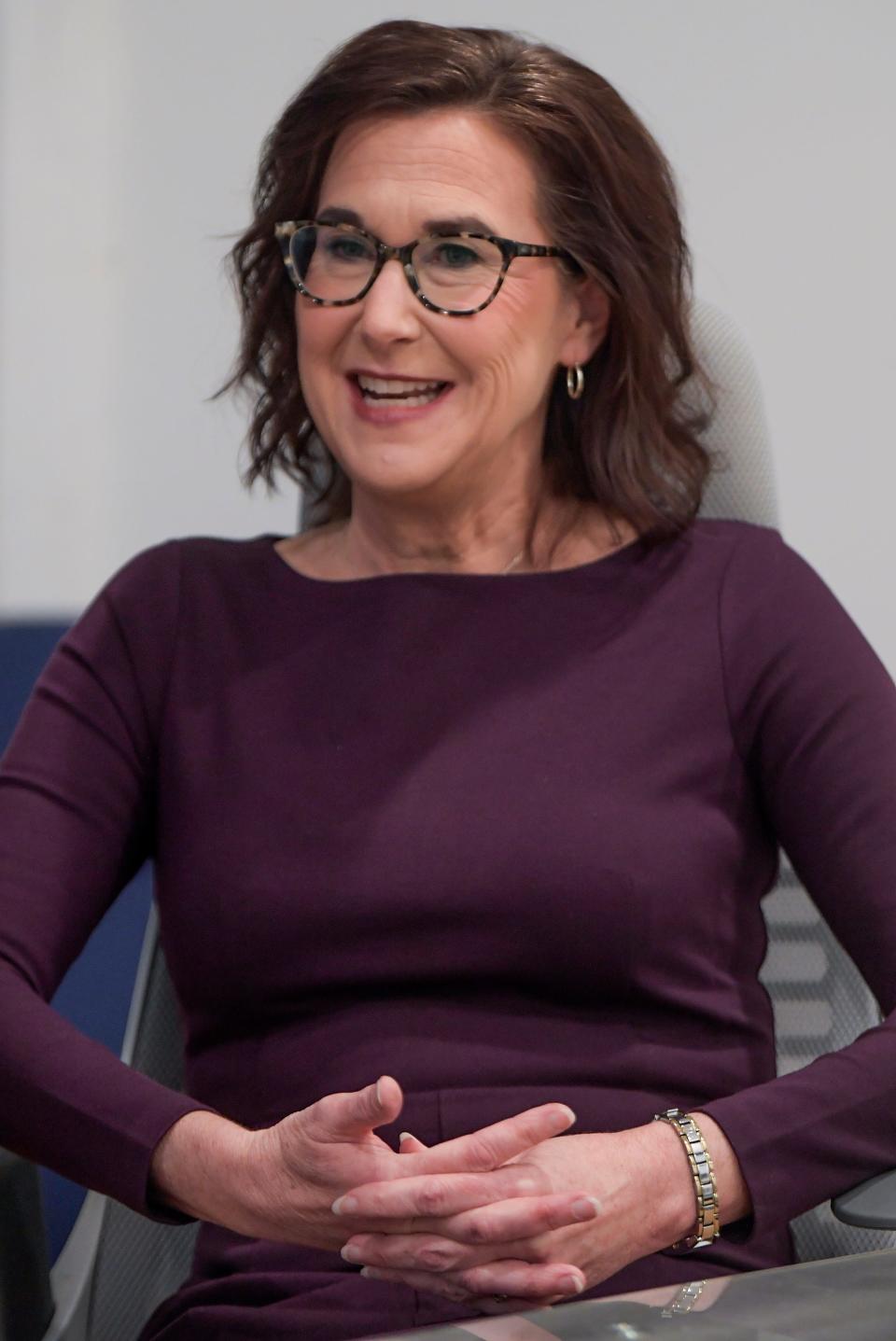How Carla Crowder is building a better, 'more merciful' Alabama through prison reform
Carla Crowder is one of USA TODAY’s Women of the Year, a recognition of women who have made a significant impact in their communities and across the country. The program launched in 2022 as a continuation of Women of the Century, which commemorated the 100th anniversary of women gaining the right to vote. Meet this year’s honorees at womenoftheyear.usatoday.com.
When Carla Crowder reported on crime and politics in the late 90s and early 2000s, she didn’t fear criticism. She expected it.
After all, she was simultaneously balancing the journalism industry’s boys club, her own desire to question authority and the art of pretending to have no opinion on topics like the death penalty and prison conditions. Pleasing every audience was an idea Crowder abandoned early.
Instead, she simply focused on justice.
To this day, that’s her priority. Crowder serves as the executive director of Alabama Appleseed, a nonpartisan, nonprofit law center known for freeing over-sentenced individuals and advocating for criminal justice reform.

After 16 years at newspapers across the country, including three years at the Montgomery Advertiser, she decided to abandon journalism. Within a span of three months in 2006, Crowder quit her job, got married and started class at The University of Alabama School of Law.
“I couldn't just sit on the sidelines and pretend to be unbiased about these issues anymore. I wasn't doing the paper any favors, and I didn't feel like I was being true to myself,” Crowder said. “Sometimes, when you have an innocent person the state is trying to kill, there's really not another side.”
Her final straw was the case of Anthony Ray Hinton, a man wrongfully sentenced to die for two shooting deaths in 1985. Hinton maintained his innocence for decades, and Crowder believed him.
His case had always been told from the perspective of law enforcement, she said, so when it was time for her to cover his appeal, Crowder decided to focus on Hinton’s side of the story. Many politicians and lobbyists were not pleased with this take.
“As is often the case with newspapers, it was like, ‘Okay, we did that. We're done with that. Our readers are tired of it, and it's depressing, so you need to find something else to do.’ But I didn't want to find something else to do,” Crowder said. “We hadn't fixed that problem.”

With her current work at Alabama Appleseed, the impact is unmistakable.
In the last year, the nonprofit got a bill passed in the state legislature to end Alabama’s practice of automatically suspending driver’s licenses when someone misses a fine payment or court hearing. Appleseed says this will alleviate pressures for 170,000 Alabamians.
Crowder is also expanding Appleseed’s bandwidth for directly representing incarcerated people, a service that she started in 2019.
“We've now done 15 cases,” she said. “And all of our clients were going to die in prison if we had not taken their cases and gotten them out.”
This interview has been edited for length and clarity.
Who paved the way for you or who did you pave the way for?
I think aggressive, women journalists who were doing work in state houses, in Congress, covering criminal justice issues in the 70s and 80s, dealing with these male-dominated environments at a time when women were not expected to challenge authority, or to ask tough questions, or to be demanding — that's one group of people for sure.
Then, I think with my legal work, I'll shift that one. I hope I'm paving the way for younger people in this state who want a kinder, fairer, more merciful Alabama, an Alabama that doesn't prioritize punishing people and building prisons. I want to pave the way for those voices to be heard, for people to realize, as a citizen of this state, you have a right to speak up. You have lawmakers who will listen to you, and there's nothing special about me.
I went to public schools in Florence. I went to a small college. I don't come from wealth, or privilege, or the Ivy League in any way, and yet, I lead an organization that's making a difference for marginalized and vulnerable people in Alabama. So anybody can do that.

What is your proudest moment?
This may sound odd, but I'm just going to say it anyway. I think my proudest moment was one that I was also most anxious about.
I was given an opportunity to present to the Downtown Birmingham Rotary Club about the prison crisis in Alabama. This is a group of heavy hitters, like all the influential business people in Birmingham, and several board members encouraged their contacts to attend. It was a very full house. This is not my happy place, being in front of a bunch of fancy people, being in the spotlight.
But I worked on it, I practiced and I nailed it. I used my platform to get people who had influence to care about something that is shameful and that needs fixing. To not be intimidated by that crowd, to not be afraid to speak out even if I'm shaking inside and to pull something like that off was a really proud moment.
What is your lowest moment?
So, I briefly took a job that didn't work out. This was when I had my law degree, and I thought it was going to be a good move.
My husband's retired, so I'm kind of the breadwinner, and for a few months, I was terrified that I was going to be unemployed and not able to support my family. I also had a moment where we thought there were rodents in the roof of my house. It was really loud in the middle of the night, and I couldn't sleep. So I had pending unemployment, a huge mortgage, rodents in my roof and a very unstable future.
It was a hard few months, but then I got this job. With those kind of things, sometimes they work out, and sometimes they don't. I'm just really grateful because it was kind of my lowest moment right before my best opportunity.
What is your definition of courage?
Courage is taking a risk and doing unpopular things that need to be done. To fix entrenched problems and to challenge power, I think that's the most courageous thing that someone in the nonprofit, legal world can do.
We're lawyers. We have some skills, and we have a platform to challenge people in power who are not using their platform in the most just ways. It takes courage, but it's also our responsibility.

Is there a guiding principle or mantra you tell yourself?
When I have doubts about working in prisons and with incarcerated people, I think back to a passage in the Bible. I think it's in Matthew 25 where Jesus says, "I was thirsty, and you gave me something to drink. I was naked, and you clothed with me. I was in prison, and you visited me." It's just a reminder that, you know, Jesus paid attention to prisoners, too.
We're not a faith-based organization. We don't put that front center, but I'm a person of faith, so I draw a lot of strength from those kinds of messages, particularly in the Gospel.
Who do you look up to?
There's a lawyer who founded the Southern Center for Human Rights in Atlanta, who's kind of the first real, crusading anti-death penalty lawyer in the Deep South, named Steve Bright.
I started writing about their cases when I was (a reporter). He grew up on a Kentucky farm, not always super polished, but says it like it is. His organization was one of the motivators for me to do something different and to go to law school, so I've idolized him for a while.
Then here in Montgomery, the federal defender Christine Freeman was on our board for a long time, and she got her start at the Southern Center. She brings a lot of those philosophies and principles to her work, and she has been at this work for over 40 years. She has just quietly done worlds of good.
How do you overcome adversity?
Persistence. We lose all the time. When you're trying to get people out of prison, and challenge mass incarceration and create more racial justice and economic justice in Alabama, there are a lot of people who aren't going to do what you want them to do. There's adversity everywhere, but just keep trying. Find another angle, find another compelling story, convince another lawmaker, do a big data search and find a solution and the numbers.
The answer can't be "no," so maybe it can be "not yet." Our driver's license bill went down four sessions in a row, and then it didn't.
What advice would you give your younger self?
Don't be so angry and frustrated when things don't go your way. Approach people with humility, patience and understanding.
More honey, less vinegar.
This article originally appeared on Montgomery Advertiser: Alabama advocate Carla Crowder talks prison reform, recent successes

